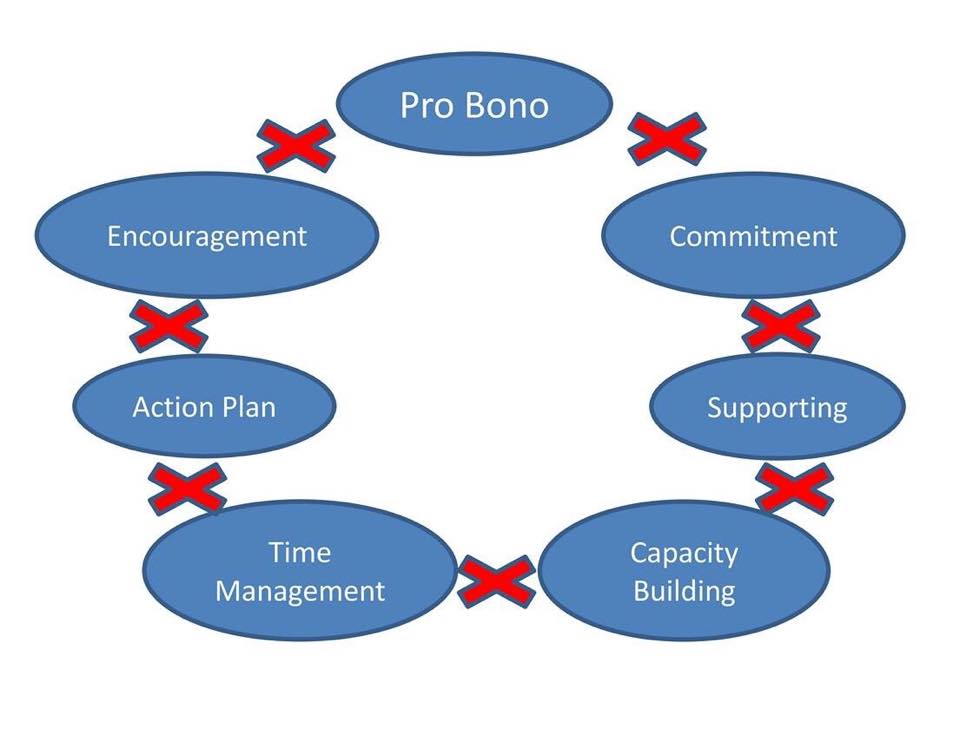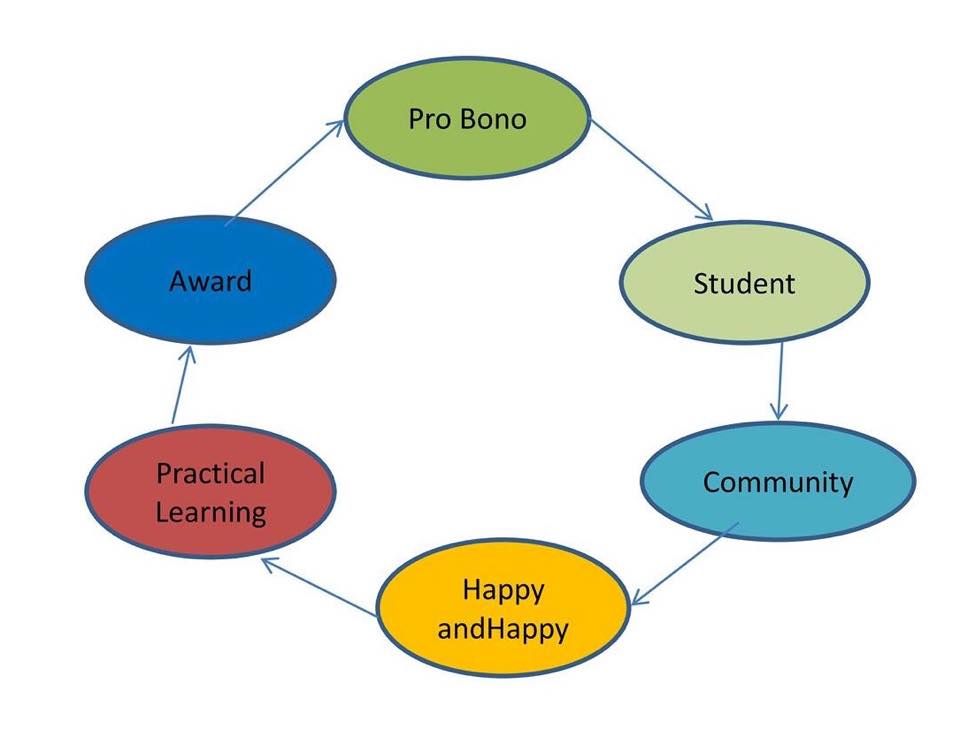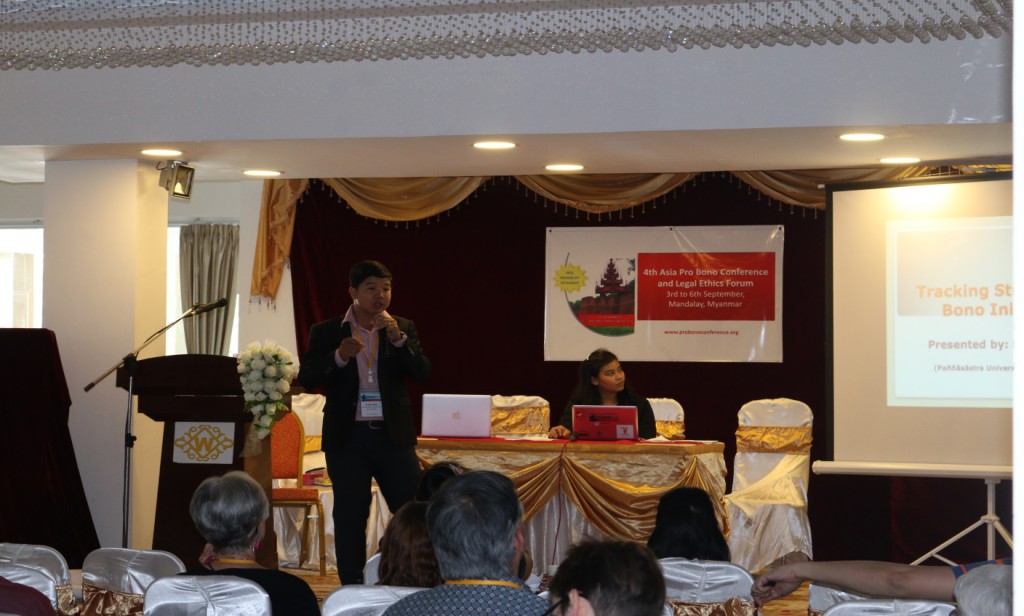My name is Mao Kimpav, a senior law student at the Faculty of Law and Public Affairs, Paññāsāstra University of Cambodia. Starting legal classes, in early 2010, by 2013, I took an elective the Community Legal Education Program (CLEP) course, which was the beginning of my CLE and pro bono journey. Before that, I didn’t exactly know what pro bono was, but I was keen to find out, and when we went into the community, to provide legal education, I chose to go to an NGO that helps orphans, the homeless, and the poor. There, I taught primary and secondary students about child labor, children’s rights, and illegal immigration law, and some of my successful life experiences.
I finally started to understand what pro bono really meant, in a class taught by Prof. Kong Phallack, who is an attorney. He explained that pro bono is helping people, in need, who do not have money, and that it is the kindness of one’s heart that motivates a law professor, legal practitioner, or student to help such people receive access to justice. He also introduced a new concept called Metta, which is a Buddhist term that means helping people, out of kindness, generosity, and love. After I fully understood these concepts, I became very interested in pro bono work, and started my own pro bono work program, called Metta Business Law Program.
Metta Business Law Program
The aim of this program is to help all Cambodian law students and business law students to set up a business project, to understand what laws and regulations are required to do so, and how to comply with Cambodian statute enforcement. Over a four and a half hour course, my team and I teach different areas of law, depending on each of our specialized skills, but a critical part of the process is to provide a consultant, who is under the supervision of Prof. Kong Phallack.
Why is this Program important?
At the moment, this program is not a public service, but we believe that we can expand it to the public, in the future. Going forward, it will be another way of promoting the rule of law, raising awareness of obligations under the law, and encouraging respect for the law, in a business environment. This will profoundly affect society.
The 3rd Asia Pro Bono Conference, in Singapore
One reason that I learned a lot from the 3rd Pro Bono Conference is because it is global, but I was surprised that the pro bono movement is so strong amongst law professors, lawyers, NGOs, government officials, and students from around the world. I was invited to share my pro bono experiences with all of the participants and to talk about my work with the other panelists.
On the last day of the conference, my team and I proposed a new pilot project called the Labor Law Metta Program. The goal of this project is to provide legal awareness and assistance to the working community and related groups, which have substantial and pressing legal problems, in the workplace and elsewhere. I have encouraged many students, at my university, to participate in this program, not only to promote pro bono, but to learn and practice helping others in the community.

The 4th Asia Pro Bono Conference and Legal Ethics Forum in Mandalay, Myanmar
Again, it was my honor to participate, share my pro bono work experiences, and learn new information from the more than 19 (regional and international) countries that were present at the conference. We not only shared the achievements and challenges of pro bono work, but also the differing views on legal ethics. In each session, all participants were very active, took part in the discussion, and shared and commented on the solutions of how to make pro bono work more effective, and how to archive its challenges and accomplishments.

During my session at the conference (Tracking Student Pro Bono Initiative), I was not only focused on the result, but also on the challenge of the process. I asked myself, the students, and the participants the same question, “What influenced you to do Pro Bono work, and why?” This question may not seem difficult to answer, for people who have been involved with pro bono work, but it may be difficult for students who have never experienced it. To help answer that question, I have come up with this student focused system:
Tracking the Student Pro Bono Initiative Cycle
Students who teach pro bono to the community increase community happiness, and obtain practical and learning experience, new skills, and awards that reward their work- e.g., a letter of appreciation and/or a graduation certificate.
Tracking the Student Pro Bono Challenge Cycle

Students need to understand what pro bono is, and that their commitment is very important for a successful pro bono program. Although they need capacity-building support and encouragement from stakeholders, students must effectively manage their own time and project time, and be sure about what they are doing and what they will be doing next.
What I am doing now?
At the moment, I am a pro bono faculty coordinator (volunteer) and help to promote pro bono work among my faculty students, in order to expand access to justice services for the community.
Conclusion
Pro bono is work without pay, but it gives students skills, practical learning experience and knowledge as they help society and their communities with access to justice. Yet, it is only Pro Bono heart that makes pro bono work effective, sustainable, and successful.
By Mao Kimpav, Senior Law Student




